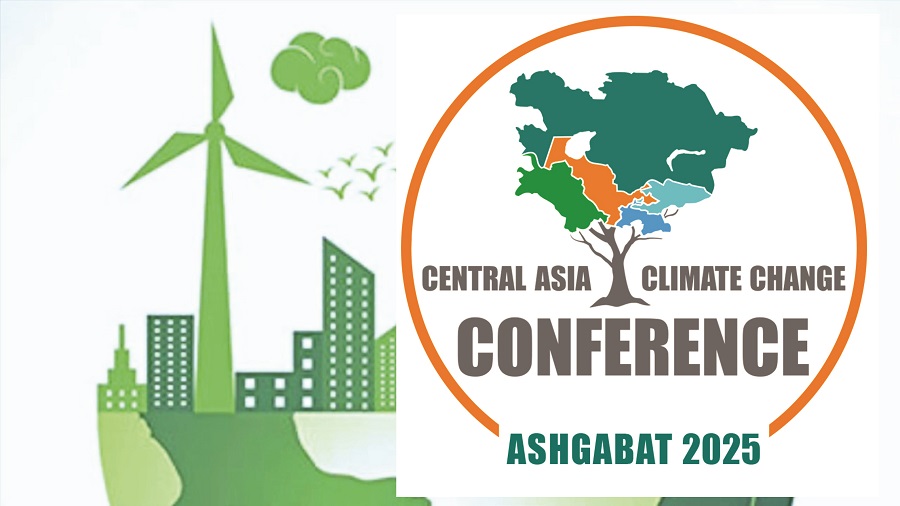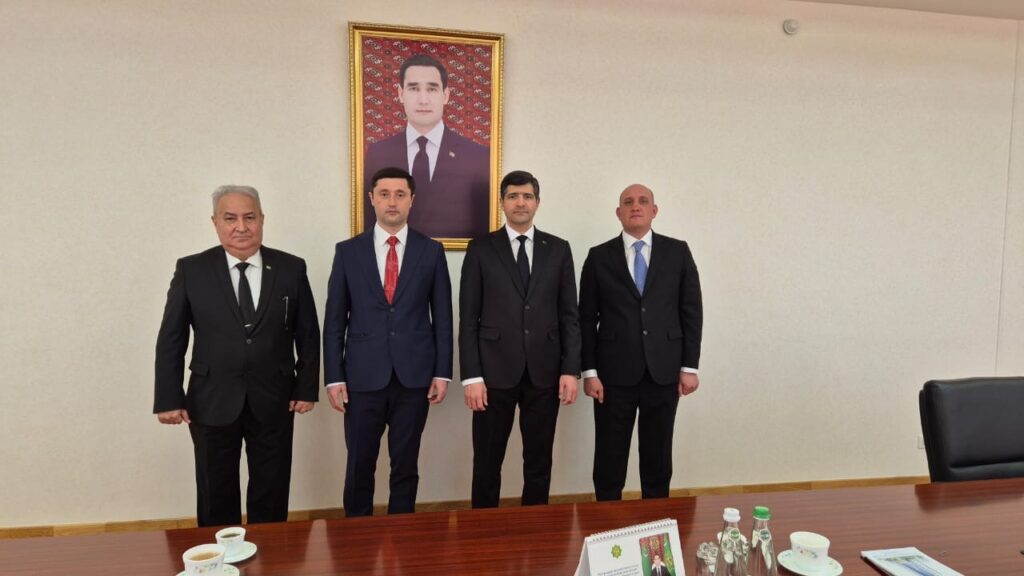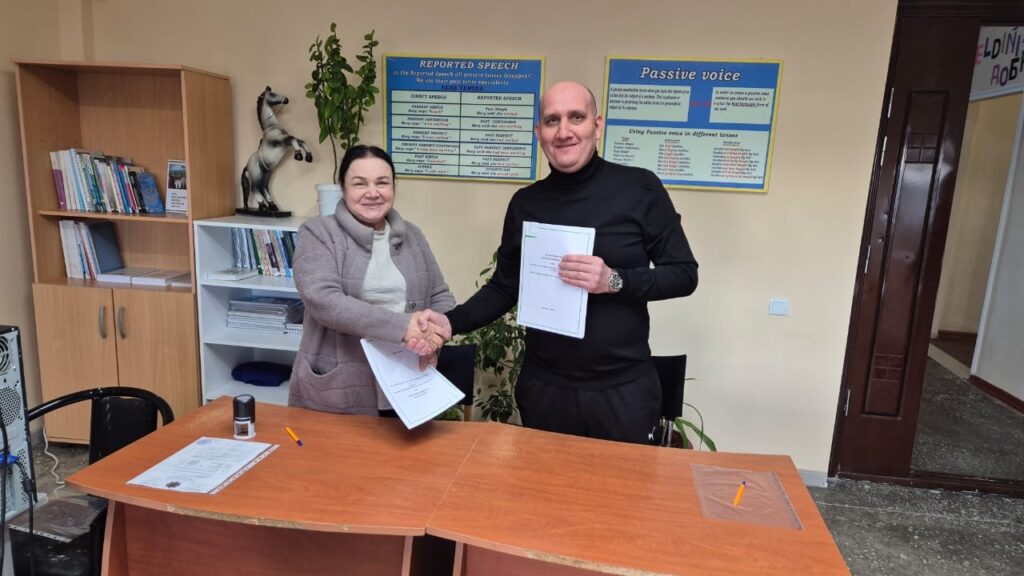“Issues of water, energy, and food balance are among the most pressing in the region, where resources are limited, and challenges are complex. It is crucial to find a compromise between meeting population needs, preserving ecosystems, and ensuring sustainable development,” stated Zafar Makhmudov, the Executive Director of the Regional Environmental Centre for Central Asia (CAREC) at the youth seminar “Drops of the Future” in Ashgabat.
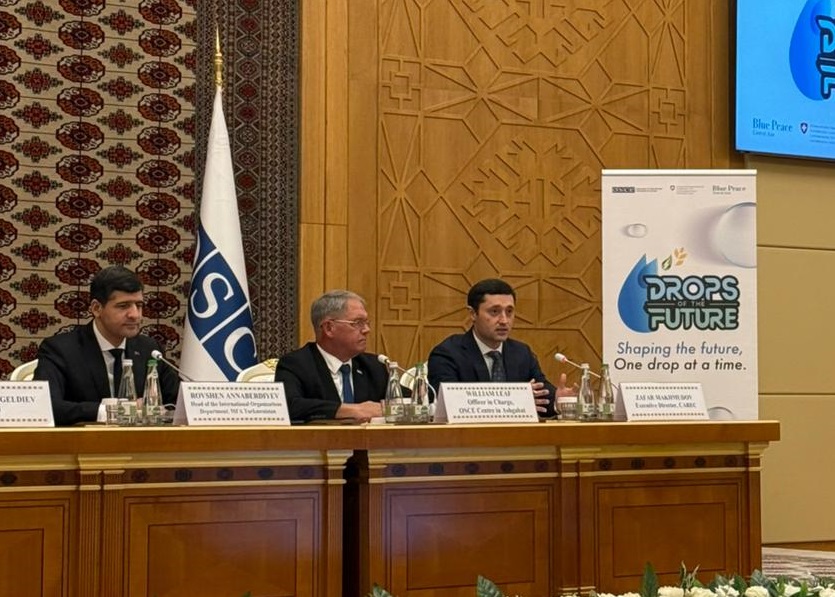
The Organization for Security and Co-operation in Europe (OSCE) in collaboration with Switzerland During organized the youth seminar “Drops of the Future”. This seminar was the final event in a series held across Central Asian countries. It plays a key role in developing the capacity of young professionals, particularly women, in priority areas such as water resource management, energy, ecology, and food security. Over two days, participants worked on shaping a unified vision of the role of youth in addressing the region’s pressing challenges, using a systemic, cross-sectoral, and intergenerational approach.
Zafar Makhmudov emphasized that the “Drops of the Future” seminars complement other CAREC and OSCE initiatives, including the “Women in Water Management of Central Asia and Afghanistan” Network and the Central Asian Leadership Program, both of which promote inclusive approaches to natural resource management. He also highlighted the active involvement of youth in exploring cross-sectoral interconnections through educational programs and the “Nexus” game, which helps future specialists gain a deeper understanding of the intricate interdependencies between sectors.
Speaking at a panel discussion, Zafar Makhmudov elaborated on the importance of the Nexus approach and its advantages over traditional sectoral approaches, which no longer adequately address modern challenges. Implementing Nexus-based methods requires enhanced cross-sectoral coordination, strategic consideration of interdependencies, and the creation of effective cooperation mechanisms.
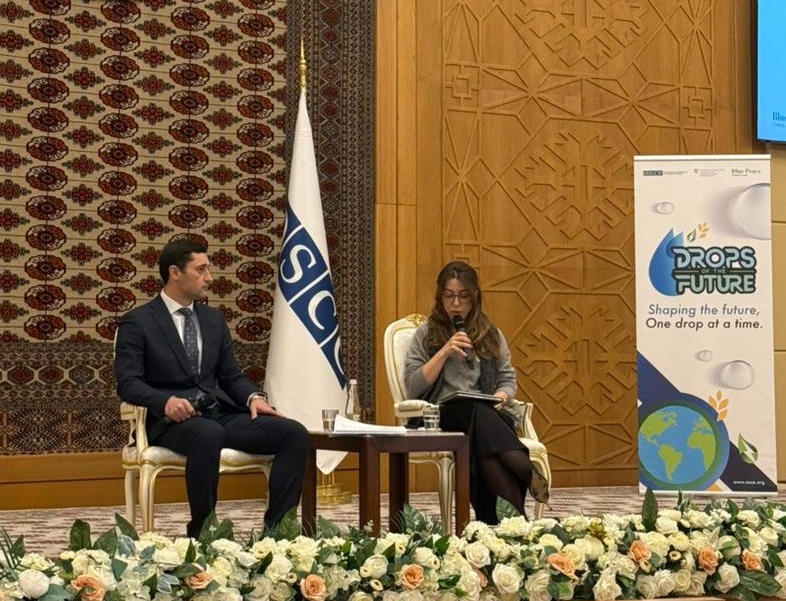
As a successful example, he presented the case of the Tuyamuyun Hydroelectric Complex:
For an extended period, the reservoir suffered from sedimentation, reducing its useful capacity. In response, a bilateral Turkmen-Uzbek working group developed an innovative reservoir cleaning model based on a public-private partnership mechanism. Under this approach, bottom sediments were processed into construction materials, which not only solved the sedimentation issue but also generated economic benefits by converting the deposits into a commercially valuable product.
On 29-30 January 2025, Ashgabat hosted the “Drops of the Future” seminar in a dynamic, interactive setting, bringing together over 60 young professionals, experts, and representatives from various sectors. The event served as an important platform for knowledge exchange, strengthening partnerships, and jointly seeking solutions for the sustainable development of the region.
Additional Information:
Mergen Kepbanov, Director of the CAREC Project Office in Turkmenistan, turkmenistan@carececo.org
Irina Yugay, Acting Manager of the CAREC Water Initiatives Support Program, wisspecialist@carececo.org

